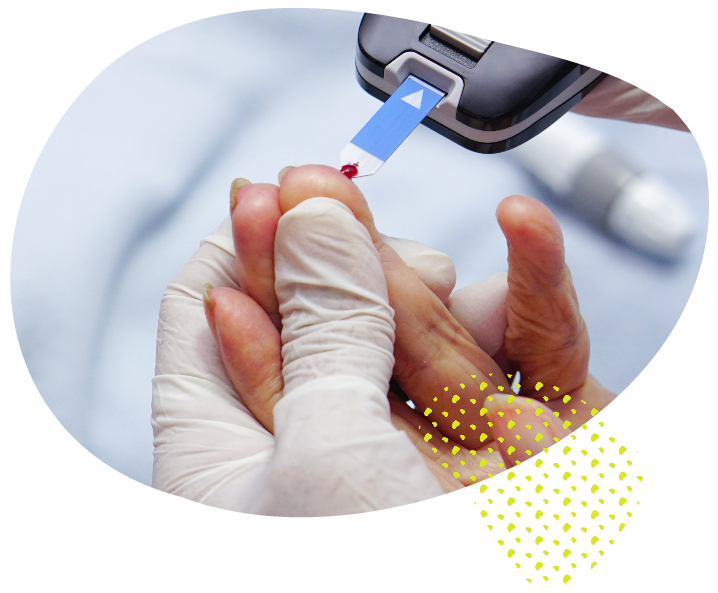Diabetes Type 1

What causes Type 1 Diabetes?
The exact cause of type 1 diabetes is unknown; however, beta cell destruction has been seen to occur in individuals who are genetically susceptible due to an immune response that is caused by environmental factors.
How can Bites Dietitians help?
Bites dietitians will assist you in managing blood glucose levels through diet. We will aim to work with you to design your daily meals in a way that keep your fasting blood glucose levels between 4-6 mmol/L and your daily glucose levels within a narrow and stable range to reduce the incidence of you having a hypoglycaemic or hyperglycaemic episode. We will assist you in lowering the risk and potentially preventing the development of comorbidities such as, ketoacidosis, kidney disease and cardiovascular disease.

An interesting fact about Diet and Type 1 Diabetes
Myth – all types of diabetes can be prevented. Not all types of diabetes can be prevented, type 1 diabetes is not preventable and is not associated with overweight or obesity, physical inactivity or any other lifestyle factors.

How can Bites Exercise Physiologists help?
Bites Exercise Physiologists will work closely with you to create an exercise plan that is tailored to your lifestyle, goals and physical activity level to help you manage your Type 1 Diabetes. Although exercise can help you to control your blood glucose levels, it can work too well sometimes and it can also be important to recognise and treat the physical signs of hypoglycaemic episodes during exercise with our expert guidance. Bites exercise physiologists can help you to work out which exercises are best and how different exercise intensities, loads and volumes will affect your blood glucose levels. They may also recommend you see a Bites Dietitian to provide advice on appropriate fuelling before, during and after exercise to minimise the occurrence of hypoglycaemic episodes.
An interesting fact about exercise and Type 1 Diabetes
Everyone is unique in how much glucose they use to perform a particular exercise/activity. Whilst one person might use 60 g of carbohydrate per hour of moderate intensity exercise, another person might use 100g. Recording your own blood glucose levels before, during and after exercise can help to determine how exercise affects you personally as not everyone responds to exercise the same! It often takes a bit of time to get to know how your body responds under different exercise conditions too for example resistance vs cardio, morning vs night time! Working with an exercise physiologist trained to analyse these numbers for you is usually a big help.
What improvement can you expect from a tailored dietary/exercise prescription?
Through following a diet and exercise prescription you will notice changes within days! Within 2 – 3 days of following a structured dietary/exercise plan you’ll already start to notice your post prandial (after meal) blood sugars improve! If a change in body composition is a goal that you’d like to work towards to prevent development of further comorbidities such as heart disease, increases in muscle mass, and reductions to waist and weight will be evident from 1-2 weeks of following your plan. Within 2 – 3 months notable changes in your glucose control (HbA1c levels) will be evident. Within 2 – 3 months you might also begin to rely less on your medications (such as insulin) to control your blood glucose levels and we will communicate any changes with your GP, nurse, Endocrinologist and medical team so that dosages may be altered accordingly. You’ll also notice less frequent hyperglycaemic and hypoglycaemic episodes as your dietary intake and exercise habits begin to complement each other nicely. You’ll also likely see reductions in the risk of co-morbid diseases such as improved cholesterol levels and blood pressure

Helpful things to bring/remember before your first appointment
- Pathology results such as HbA1c, Fasting Glucose, Oral Glucose Tolerance Test results (OGTT) and insulin studies
- List of medications you are on and dosages
- If you are tracking your blood glucose levels at home, your notebook and/or food diary
- Any medical history from your GP or specialist that might be helpful for us to know
Here’s A Type 1 Diabetes Friendly Recipe
That You Might Like To Try
That You Might Like To Try
